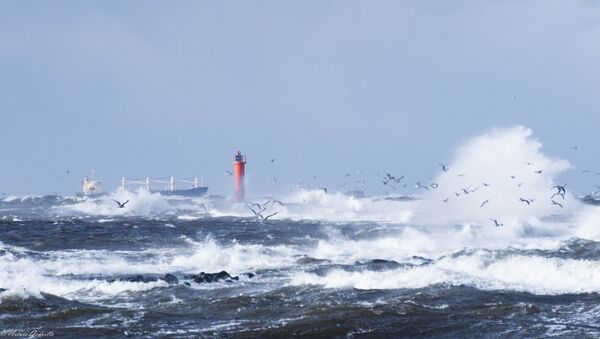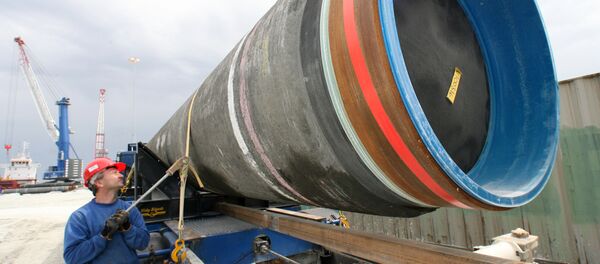Even though this has never been used, it is hardly surprising that the European Commission constantly has sought to weaken Finland's "dependence" on Russian gas and is ready spare no expense. Recently, the European Commission announced its decision to allocate approximately 210 million dollars to support the construction of the first line of the Baltic Connector pipeline, which is expected to link Finland and Estonia, European media platform Euractiv reported. Obviously, Brussels has been counting on the Baltic Connector to end Finland's "isolation" in terms of energy supplies from Europe, allowing the Nordic nation of 5 million, to go easy on Russian gas.
€187.5m investment in 1st gas pipeline Estonia-Finland. Balticconnector to end gas isolation https://t.co/TwGiFGpjSc pic.twitter.com/cya3eGRjl2
— European Commission (@EU_Commission) August 10, 2016
According to the European Commission, the circa 150 kilometer long Baltic Connector remains one of the most important projects for the European energy market as it is expected to help the countries of the Baltic region to diversify their energy supplies (which in this context means disrupting their traditional economic ties with Russia). For this reason alone, the EU is ready to finance 75 percent of the total project cost, which is the maximum possible share. European Commissioner for Climate Action and Energy Miguel Arias Cañete has repeatedly stressed that the EU's priorities are diversification of energy sources and energy routes, as well as of energy markets.
Previously, Finland endorsed the Russian gas pipeline project Nord Stream 2, which aims provide up to 55 billion cubic meters of direct gas supplies from Russia through the Baltic Sea, bypassing the Baltic states and Poland, to the German coast. The project has, nevertheless, met fierce opposition from some EU member states, such as Poland and the Czech Republic, over fears of increased energy dependence on Russia.
Earlier this week, debates about the future of Europe's gas supply were revived, as talks between the Russian and Turkish presidents in St. Petersburg rejuvenated the southern pipeline project Turk Stream, which is aimed to supply gas under the Black Sea to Turkey and further to Greece. Earlier, Bulgaria announced its interest to resume the pipeline project South Stream, which was abandoned following the introduction of anti-Russian sanctions in 2014.




